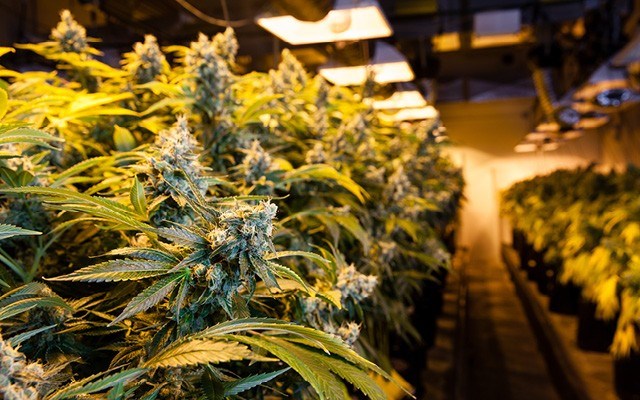With the federal government's July 2018 deadline for marijuana legalization fast approaching, provinces and municipalities across the country are busy trying to navigate the sticky path forward.
In the case of B.C., the government is seeking feedback from the public until Nov. 1 on how marijuana should be regulated and sold in the province at www.engage.gov.bc.ca/BCcannabisregulation.
The survey asks about things like minimum age for purchase, personal possession limits, public consumption, drug-impaired driving, personal cultivation and potential retail models.
The province is also meeting with local governments, First Nations and other stakeholders with a goal of having legislation ready for the spring session.
The role of the feds (production) and provinces (regulation, distribution and retail) is clear, said Mayor Nancy Wilhelm-Morden — what's less clear is the role municipalities will play in any new legislation.
"It's going to be interesting... from a municipal perspective, we respect the fact that this is brand new to everybody, but we also want to ensure that there's not a whole lot of downloading going on," she said, adding that the RMOW's primary concerns are similar to the province's: protecting children and youth, prioritizing health and safety and achieving a reduction in crime.
Whistler will find itself in an uncommon position in that it doesn't have any existing dispensaries, the mayor said.
"It's not as if we're going to be legitimizing already existing businesses, because there aren't any, so that's kind of a unique situation we find ourselves in," she said.
How the province decides to handle distribution remains to be seen, but the RMOW will likely seek community input before it allows dispensaries to start popping up on the Village Stroll.
"If it's up to each town and city as to where they're going to permit dispensaries, then we're going to have to give some thought (to) that and obviously consult the community," Wilhelm-Morden said.
That's not to say there hasn't been interest in opening a Whistler dispensary in the past.
"We have had inquiries, not many, but some, about opening up a dispensary, and our standard reply is, 'Well it's illegal, so don't even think about it,'" the mayor said.
"Now that it is going to be legalized, I'm sure there's going to be a lot of interest."
In the District of Squamish, marijuana dispensaries became legal in July 2016, in part to help the District prepare for the impending federal legalization of the controlled substance. Squamish currently has two licensed dispensaries and a third working its way through the business licence process.
While the Village of Pemberton (VOP) has heard from interested parties regarding opening a local dispensary in the past, the village's zoning bylaw currently prohibits them.
"We are undertaking a zoning bylaw review but until it is legalized the Village is unlikely to change its position with respect to prohibitions," a VOP spokesperson wrote in an email.
As for its preferences around marijuana legalization, VOP officials will be determining their approach as they work through their zoning bylaw review, the spokesperson added.
With a municipal strategic planning session set for mid-November, the issue of legalization will likely be a priority item for the RMOW, Wilhelm-Morden said.
"This will certainly be on the work plan for the next six months," she said. "And yeah, it's all new territory."




